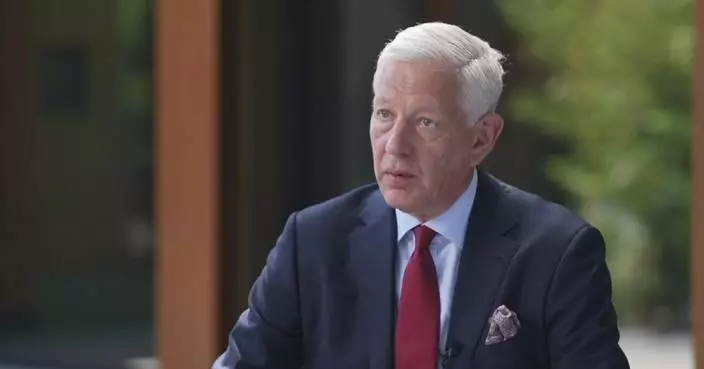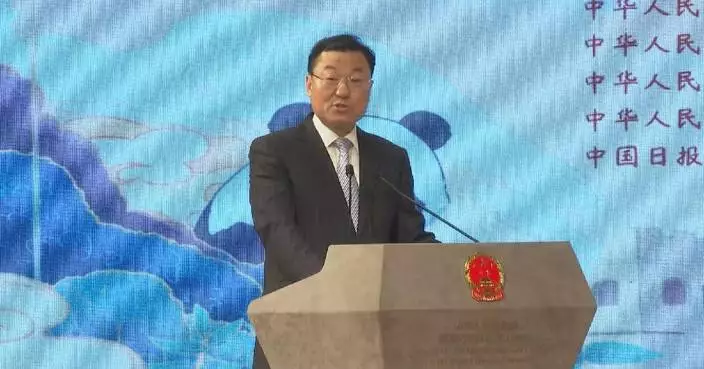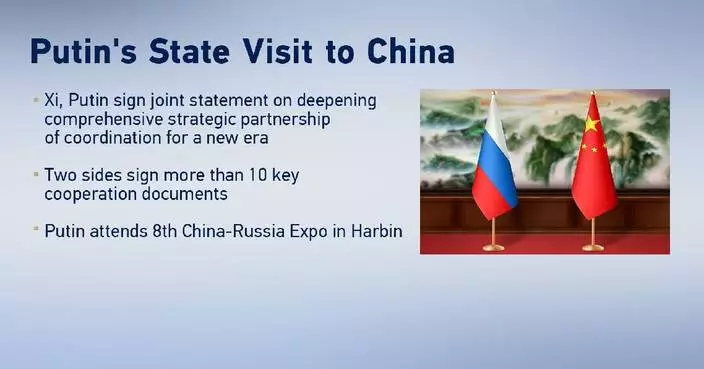Bangladesh has endured extreme temperatures this year as heatwave sweeps large parts of the South Asian country.
The temperature rose to 43.8 degrees Celsius on Tuesday, in the country's southwestern district of Jessore, a record since 1989, according to the Bangladesh Meteorological Department (BMD).
The temperature for capital Dhaka rose to 40.5 degrees Celsius for the second consecutive day on Tuesday, the city recorded a high temperature at 40.6 degrees Celsius on April 16 last year, the highest in the Bangladeshi capital in 58 years, according to BMD data.
At least 10 people died in a week in Bangladesh due to the scorching heat, the government confirmed Tuesday, highlighting the impact of successive extreme heat weather conditions.
Experts said multiple negative human factors have led to Bangladesh being continuously hit by disturbing heatwaves.
"Population explosion, unplanned urbanization, deforestation in a country of this size are some of the reasons square for temperature rising day by day. One of the issues of unplanned urbanization is the increase in vehicles and mechanization in the city, the use of air conditioners is increasing everywhere, many power plants are being built to increase the use of electricity," said Zunaid Ali Saki, an environment and climate expert at the Friendship NGO.

Heatwave engulfs Bangladesh
The Russian auto market has undergone a major shift in recent years,with Chinese brands surging in popularity and now capturing over half of new car sales in Russia.
Following Russia's conflict with Ukraine, major companies from Germany, the U.S., South Korea, and Japan ceased official sales, supplies, and services in the country, leading to a significant increase in prices for their cars and spare parts.
This void has been filled by Chinese car brands, whose market share in Russia surged to over 60 percent in 2023, nearly doubling from the previous year. In contrast, China held just a 9 percent market share in February 2022.
Ekaterina, an owner of a Chinese car who switched from a European brand, cited the complications in servicing her old car after Western car brands exited the Russian market. She highlighted the stability of Chinese car prices as a key factor behind her decision.
"A year ago, many people had concerns about whether to switch to a Chinese-made car and some of my friends decided to do so. People looked at the car, listened to the pitch, and made the choice naturally because the price is stable," she said.
Sergey Tselikov, director of the analytical agency Avtostat, predicts further growth in 2024, as Chinese companies have already exported record volumes of cars to Russia.
"First, almost all other brands have stopped supplying to Russia. Automakers in South Korea, Japan, Europe and the U.S. have halted supplies amid fears of sanctions," said Tselikov.
Tselikov also pointed to the significant quality improvements in Chinese car manufacturing over the past five to seven years as another reason for their popularity in Russia.
The share of dealerships selling Chinese cars in Russia witnessed a remarkable increase, rising from 31 percent to 65 percent in 2023, while the number of models and modifications continues to expand. Chinese automakers have even re-purposed some factories previously used by Western car manufacturers.
Russia is also encouraging localization efforts, hoping to revive its own car manufacturing industry.
"The [Russian] Ministry of Industry and Trade and the government are stimulating and trying to ensure that the cars are not only imported but assembled in Russia and then hopefully localized. In Russia, this is a problematic endeavor because it is very difficult to produce cheaper components in Russia than those produced in China," said Tselikov.
Russian companies are seeking collaboration with Chinese firms to domestically assemble Chinese cars. Moskvich, a long-established Soviet-era car company, has started assembling Chinese cars under its own brand.

Chinese cars reshape Russia's auto industry as Western brands scale back










